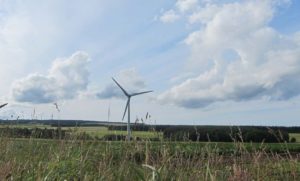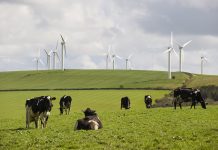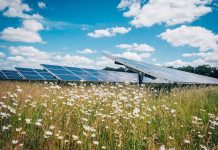 Kaluza, an intelligent energy platform, has begun working with Vento Ludens, owners and operators of the Muirake wind farm in Aberdeenshire, to provide a flexibility through National Grid ESO’s Optional Downward Flexibility Management (ODFM) service.
Kaluza, an intelligent energy platform, has begun working with Vento Ludens, owners and operators of the Muirake wind farm in Aberdeenshire, to provide a flexibility through National Grid ESO’s Optional Downward Flexibility Management (ODFM) service.
ODFM pays distribution-connected generators to stop exporting power to the system, or others, such as batteries or industrial consumers to draw more power. This is called for when demand drops significantly, to help balance the grid.
By bidding in green energy from Vento Ludens’ wind farm to NGESO, Kaluza is looking to establish how distributed generation can be used as a meaningful resource at a whole system level. This builds on the technology platform’s extensive work in mitigating wind generator curtailment, through domestic demand response in the Orkney Islands.
Conor Maher-McWilliams, head of flexibility at Kaluza commented, “Lockdown has shown us that we cannot always easily predict demand patterns. This task will be made even more challenging as millions of electric vehicles plug in to the grid, coupled with the government’s recent pledge of 40GW of wind generation by 2030. We therefore have to find new ways to bridge the gap between the national grid and individual, distributed renewable generators on the ground.
“Kaluza already offers flexibility services to DNOs and the plan is to extend the platform’s expertise in flexibility markets and optimisation algorithms, to create a balancing resource for use at a national level.”
Matthew Haughton, project developer at Vento Ludens commented, “We are entering very exciting times for distributed generation. In the UK, the markets are reaching a pivotal point. Opportunities for generators will soon go beyond traditional purchase power agreements and subsidies, and will increasingly play a role in grid balancing. Beyond the obvious draw for the balance sheet, the ability for green generators to keep the grid in balance will be crucial in enabling the UK to reach its net zero goals. For the Muirake wind farm, ODFM marks the first of hopefully many steps innovating within National Grid ESO’s opportunities to come.”



